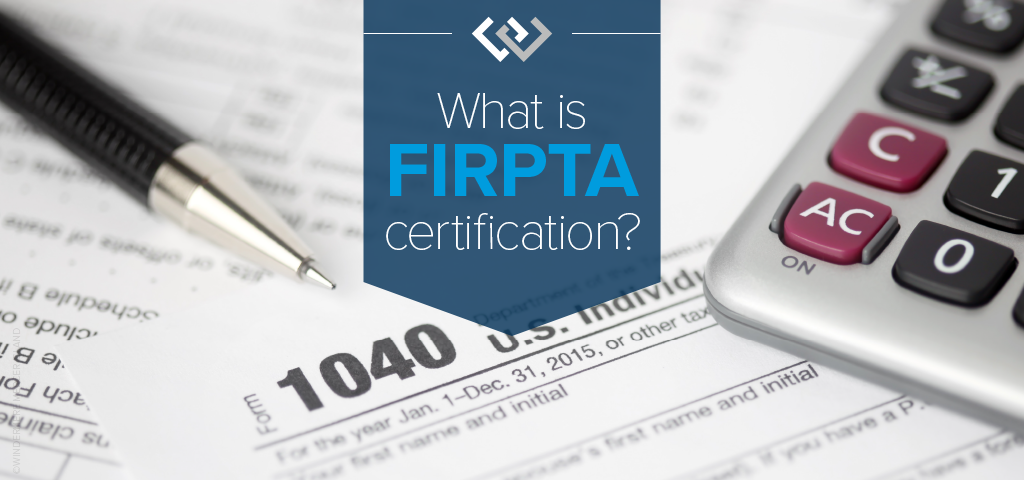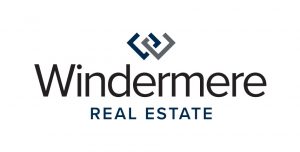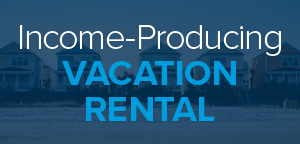Social Links Widget
Click here to edit the Social Media Links settings. This text will not be visible on the front end.
What is FIRPTA Certification?

A complete overview on why you need to know about it…
If you are purchasing property from a non-US individual or entity, you may be required to withhold taxes under the Foreign Investment in Real Property Tax Act of 1980 (“FIRPTA”), 26 U.S.C. 1445 (unless one of the exceptions in the Act applies). The seller must complete a certification to inform both you (the purchaser) and the closing agent (typically the escrow company) whether tax withholding is required.
The above law applies to foreign corporations, partnerships, trusts, estates and other foreign entities, as well as to foreign individuals. If the seller is a corporation, partnership, trust, estate or other entity, the terms “I” and “my” in the doc refer to the entity rather than an individual. A “real property interest” includes full or part ownership of land & any improvements; leaseholds; options to acquire any of the foregoing; and an interest in foreign corporations, partnerships, trusts or other entities holding U.S. real estate.
Under IRS code, the certification must include the property address, seller’s citizenship status, taxpayer identification number, and home address. Note that while the certification is delivered to the buyer prior to closing, social security numbers are not inserted until after the seller signs closing papers in order to prevent fraud.
Obtaining this completed certification is of critical importance because a home buyer can be personally liable for the full amount of FIRPTA withholding tax required to be withheld, plus penalties and interest. When a seller is a foreign person, the buyer and seller are advised to seek the guidance of an accountant or tax attorney to determine the best steps forward. Closing agents and real estate brokers are not qualified or permitted to provide tax advice or guidance.
What the FIRPTA Certification says about Required Withholding if the Seller is a Non-Resident Alien under IRS Guidelines
“If the seller is a non-resident alien, and has not obtained a release from the IRS, then the closing agent must withhold 15% of the amount realized from the sale and pay it to the IRS, unless the buyer certifies that the selected statement below is correct:
□ Amount Realized ($300,000 or less) and Family Residence= No Tax. (a) I certify that the total price that I am to pay for the property, including liabilities assumed and all other consideration to Seller, does not exceed $300,000; and (b) I certify that I or a member of my family* have definite plans to reside on the property for at least 50% of the time that the property is used by any person during each of the first two twelve-month periods following the date of this sale. If the buyer certifies these statements, there is no tax.
□ Amount Realized (more than $300,000, but not exceeding $1,000,000) and Family Residence= 10% Tax. (a) I certify that the total price that I am to pay for the property, including liabilities assumed and all other consideration to Seller, exceeds $300,000, but does not exceed $1,000,000; and (b) I certify that I or a member of my family* have definite plans to reside on the property for at least 50% of the time that the property is used by any person during each of the first two twelve-month periods following the date of this sale. If Buyer certifies these statements, then Closing Agent must withhold 10% of the amount realized from the sale and pay it to the IRS.
* (Defined in 11 U.S.C. 267(c)(4). It includes brothers, sisters, spouse, ancestors and lineal descendants).
Under penalties of perjury, I declare that I have examined this Certification and to the best of my knowledge and belief both statements are true, correct and complete. I understand that this Certification may be disclosed to the IRS and that any false statement I have made here could be punished by fine, imprisonment or both.”
Exceptions from FIRPTA Withholding
The IRS lists eleven exceptions to FIRPTA withholding listed on the IRS website. Of these, there are three that are more typically seen in residential real estate transactions:
OWNER-OCCUPIED BUYER: Sales price is $300,000 or less, and the individual buyer or a member of their family has definite plans to reside in the property for at least 50% of the number of days the property is used by any person during each of the first two 12-month periods following the sale.
NOT A FOREIGN SELLER: Seller signs a FIRPTA certification (form 22E) stating that the seller is not a foreign person.
WITHHOLDING CERTIFICATE: Before closing, seller obtains a withholding certificate from the IRS which reduces or eliminates the FIRPTA tax for the foreign person. The seller or transferor should also work with an accountant or tax attorney.
In most cases, the buyer or closing agent is the withholding agent. If you are the transferee/buyer, you must find out if the transferor is a foreign person by obtaining the FIRPTA Certification. If the transferor is a foreign person and you fail to withhold, you may be held liable for the tax. For cases in which a U.S. business entity such as a corporation or partnership disposes of a U.S. real property interest, the business entity itself is the withholding agent.
Delivery of the FIRPTA Certification is Required in NWMLS Purchase Agreements
Because this could be a significant aspect of a home purchase, our local MLS requires all sellers to disclose if they are a foreign person at the time of listing a property for sale. The seller’s real estate broker will also ask the seller to complete the FIRPTA Certification on a NWMLS Form 22E at that time.
The seller or their real estate broker must then deliver the completed NWMLS Form 22E (as part of the contract or separately to the closing agent) within 10 days after you have a mutually agreed upon contract. Failure to do so can create an out for the buyer.
The contract further requires seller to warrant their citizen status to buyer, provides instructions to the closing agent, and outlines the termination process in the event the FIRPTA Certification is not timely delivered.
“Seller Citizenship and FIRPTA. Seller warrants that the identification of Seller’s citizenship status for purposes of U.S. income taxation in Specific Term No. 14 is correct. Seller shall execute a certification (NWMLS Form 22E or equivalent) under the Foreign Investment in Real Property Tax Act (“FIRPTA”) and provide the certification to the Closing Agent within 10 days of mutual acceptance. If Seller is a foreign person for purposes of U.S. income taxation, and this transaction is not otherwise exempt from FIRPTA, Closing Agent is instructed to withhold and pay the required amount to the Internal Revenue Service.
If Seller fails to provide the FIRPTA certification to the Closing Agent within 10 days of mutual acceptance, Buyer may give notice that Buyer may terminate the Agreement at any time 3 days thereafter (the “Right to Terminate Notice”). If Seller has not earlier provided the FIRPTA certification to the Closing Agent, Buyer may give notice of termination of this Agreement (the “Termination Notice”) any time following 3 days after delivery of the Right to Terminate Notice. If Buyer gives the Termination Notice before Seller provides the FIRPTA certification to the Closing Agent, this Agreement is terminated and the Earnest Money shall be refunded to Buyer.”
Definitions and Resources Related to FIRPTA
The IRS provides a Definitions of Terms and Procedures Unique to FIRPTA web page with helpful information, including how executors of estates, partnerships, corporations, and spouses (where only one spouse is a foreign person) should proceed.
In addition, there is also Individual Taxpayer ID Guidance for Foreign Property Buyers/Sellers to provide documentation requirements for individuals seeking an ITIN.
If you are looking for information on Reporting and Paying Tax on U.S. Real Property Interests or general Real Estate Tax Center guidance, you’ll find it on the IRS.gov website as well.
Final Thoughts…
Obtaining FIRPTA Certification in your home purchase and, when your seller is a foreign person, verifying that any required withholding is made is an important step you can take to provide peace of mind. This article is provided solely to inform you of the need to be alert to this issue. It does not replace competent legal or tax advice. You should also seek the guidance of a qualified professional regarding your individual situation.

We earn the trust and loyalty of our brokers and clients by doing real estate exceptionally well. The leader in our market, we deliver client-focused service in an authentic, collaborative, and transparent manner and with the unmatched knowledge and expertise that comes from decades of experience.
2737 77th Ave SE, Mercer Island, WA 98040 | (206) 232-0446
mercerisland@windermere.com
© Copyright 2021 Windermere Mercer Island
Thinking About Buying a Second or Vacation Home?

Here are a few tips to make sure it’s worthwhile…
These days, having your own home away from home is a compelling concept. There are many clear benefits including being able to use your home how you wish, decorate to your taste, and include your furry friends in your time away. There are also challenges to be considered as home security, maintenance, and holding expenses are nothing to ignore.
One consideration to start with is whether the home will be solely used by your family or become an income-producing vacation rental. In addition to being a lifestyle choice, this determination will impact your income taxes and insurance needs and should be made before you embark upon this journey.
There are advantages and disadvantages to both options:
Owning as a Personal Second Home
PROS
- Comfort: Returning to the same place is familiar and often more relaxing than staying in a hotel or vacation rental. It allows you to enjoy your space as you wish and include pets and hobbies in your home away from home. Proximity to your primary residence is an important factor. How long will it take to get there? You will likely visit more often if your second home takes under three hours to travel to. Choosing a location that you will enjoy for years to come is essential to making a good purchase decision.
- Convenience: The ability to keep your possessions that are used exclusively at the second home simplifies travel and packing and makes it easier to be surrounded by the things you enjoy.
- Long-term profit: While assets fluctuate in value in the short term, vacation properties are more likely to retain their value and appreciate because they are located in popular areas with a geographically limited supply. At some point you could have a nice nest egg or a property that becomes a family vacation home for future generations.
- Future retirement options: A common retirement goal is to have a place to retreat for part of the year in addition to your main residence. Whether a second home will become a full-time venue in retirement or continue to be a part-time get-away, having it established before retirement gives you options.
CONS
- Initial cost: Buying a second or vacation home is a big investment. Down payment requirements are typically higher on non-primary residences and that cash outlay can take away from other investment opportunities.
- Maintenance: Your second or vacation home will require maintenance and upkeep just like your primary residence. You’ll need to plan to tackle that yourself or hire someone else to do it for you. Let it get away from you, and you will be spending your leisure time worrying about everything that needs to get done instead of relaxing.
- Commitment: When you are paying a significant amount of money each month for a second or vacation home, you may feel that you need to constantly visit the property to justify your investment. You’ll need to ask yourself if the idea of going to the same place over and over again is appealing or a turn-off.
- Other considerations: Evaluating and mitigating your exposure to natural disaster (fire, flood, earthquake, tsunami, etc.) and liability risks (guest injury, burglary, squatting, vandalism, arson) on a home that is vacant for much of the time is an important consideration. Determine how you will keep your home safe and secure.
Owning as an Income-Producing Vacation Rental
PROS
- Income to offset expenses: A good vacation rental property generally provides a healthy rental revenue which could potentially cover mortgage payments and operating expenses. Using an online short-term rental service like Airbnb makes it convenient to manage your rental property. Their website interface makes pricing, marketing, and communication with potential guests straightforward and easy. Airbnb will also oversee the billing process for you.
- Tax considerations: You may qualify for federal tax breaks and deductions related to holding your investment property. This can help offset the expense of owning and provide investment opportunities for the future.
- Long-term profit: Like a second home, vacation properties are more likely to retain their value and appreciate over time. At some point you could have a nice nest egg or a property that becomes a family vacation home for future generations.
- Future retirement options: While there are tax considerations to converting an income-producing property into a personal use property, owning a vacation home allows you to insulate yourself against rising real estate prices and give you options for future use.
CONS
- Initial cost: Buying a vacation home as an investment property will require both a hefty down payment and initial start-up expenses to furnish and supply the home. You will need to evaluate that cash outlay with other potential investment opportunities.
- Management and maintenance: Vacation rentals can be costly to manage, both in terms of time and money. These properties may require seasonal upkeep and special maintenance considerations. You may even incur costs to maintain or monitor the property even when it’s not actively being utilized.
- Revenue fluctuations: Vacation rental properties are particularly sensitive to seasonal fluctuations and economic downturns, which could leave you financially exposed. Having a property that is attractive in multiple seasons is a definite plus.
- Short-term rental restrictions: Many state and local municipalities are seeking to reign in short-term vacation rentals, which could put a damper on potential revenue from these properties. Many now require a minimum rental period of 30 days. In contrast, there are locations that are ideal for these kinds of short-term rentals. Look into regional ordinances, do a Google search, and check out local newspapers to discover recent talk of changing or enforcing such codes.
- Other considerations: In addition to evaluating and mitigating your exposure to natural disaster and liability risks, you will want to consider other holding expenses. These might include higher renovation and repair costs due to high-use or damage. Most travelers expect the latest appliances and furnishings, so you will have to update every few years. Unfortunately, short-term renters are less likely to report any necessary repairs and guests are far less likely to treat the property with respect since there is no sense of ownership or obligation.
Final Thoughts
Regardless of your decision to use the property personally or as an investment, checking in with your CPA and financial advisor is a good first step. They can advise you of pros and cons of each approach, States that are more or less favorable to own a non-primary residence in, and whether you should establish a trust or LLC to hold the property in.
Having a savvy real estate broker help you understand the local scene, evaluate options, and provide vetted resources is essential, especially when you are looking in an area you are less familiar with.
Still have questions? Contact one of our knowledgeable brokers for assistance with exploring a second and vacation home purchase locally or a referral to a great broker in other areas you are considering.

Find a Home | Sell Your Home | Property Research
Neighborhoods | Market Reports | Our Team
We earn the trust and loyalty of our brokers and clients by doing real estate exceptionally well. The leader in our market, we deliver client-focused service in an authentic, collaborative, and transparent manner and with the unmatched knowledge and expertise that comes from decades of experience.
2737 77th Ave SE, Mercer Island, WA 98040 | (206) 232-0446
mercerisland@windermere.com
© Copyright 2021 Windermere Mercer Island
Should I Be a Homebuyer in this Market?

Fourteen offers, all contingencies waived, earnest money deposit released to seller on offer acceptance. This is the norm rather than the exception in our current market. Sound crazy? It is! And we’ve been here before. Today’s buyers are likely paying considerably above market values to “win” the war and snag a house that they can live with for the foreseeable future. So long as prices keep increasing and demand is insatiable, that gamble might pay off nicely.
But eventually, something has to give. We know this because market cycles are inevitable. They keep our economy healthy and in check. If for example, mortgage interest rates increase too quickly, home prices become too unaffordable, or local or national events significantly impact consumer confidence, the market can turn on a dime. When it does, someone always gets left holding the bag (or an unsaleable house) as the market shifts from a seller’s market to a buyer’s market.
You might be wondering why a real estate company is suggesting you think twice before making the plunge. The truth is, we’re in it for the long haul and we know informed buyers are the best buyers. If you are a home seller wondering if we just showed your cards, fear not—having an informed buyer who has done their homework means they’re more likely to follow through to closing (and less likely to seek retribution from you later because of unknown or undisclosed defects). Read on!
FIRST THINGS FIRST
You know yourself and your situation better than anyone else. You need to be financially comfortable with the monthly payment, down payment, and ongoing costs of home ownership (see Should I Rent or Buy a Home?).
You will also want to consider whether an unexpected relocation could be in your near future. Do you feel secure in your employment situation? Knowing you could comfortably stay put and ride out the storm of any downturn in the market protects you considerably compared to being in a must-sell predicament. If you feel unsure about your financial position or might be required to relocate in the next couple of years, now might not be the right time for you to buy.
Your broker will be able to recommend prominent local lenders, inspectors, and other necessary vendors. Do your homework to select the right lender for you and make formal loan application with them to obtain underwriting approval. Beyond just pre-approval, underwriting approval assures you that your loan will go through (unless your employment situation changes or there is an issue with the house itself). This is well worth the time and effort to accomplish. While you’re at it, research potential inspectors to determine who you think will do the best job and what their options for completing an inspection within a tight timeline are.
If cash offers or those with waived financing contingencies are commonplace in the area you are searching, explore alternatives for funding your purchase. In addition to getting pre-underwritten, can you temporarily borrow funds from a 401k, investment account, or line of credit to allow you to better compete with cash? Do you have other interim options that would allow you to get in the door and obtain a purchase mortgage loan post-purchase? There are many nuances to making this work, but it might just be worth investigating if it is right for you.
Consider your risk tolerance level. This is something only you can determine, and everyone will have a different baseline. If you’ve checked off the items suggested above and decided you are financially and emotionally ready to get in the ring, how do you protect yourself when buying a home in an extreme seller’s market? Read on for things you can do to put yourself in the best possible position when buying a home—even in an ultra-competitive market. In this article, we will focus on critical aspects of the home itself and the home-specific research you should do before submitting an offer.
ASPECTS TO CONSIDER BEFORE YOU GET INTERESTED
Here are four attributes, beyond the number of bedrooms and baths, that you should have your eye on. Many buyers overlook undesirable aspects of a home when there are few choices, however “Grade A” properties will have the highest resale potential even in a future buyer’s market.
Home (building) quality: Well-built homes with “good bones” will outlast mediocre quality homes (and their components and systems) any day of the week. Determining quality is somewhat subjective. You will notice it in well-designed details, cabinetry and components that stand out from the competition. If the home has had renovations, do they match or exceed the quality of the original structure? Granted, affordability will impact quality, but it is critical to size up any home you are considering so that you’re comparing apples to apples. You don’t pay the latest iPhone price for a no name brand phone, and the same applies here. If you purchase a fair quality home at the going rate of higher quality homes, you are likely overpaying.
Immediate to-dos and deferred maintenance: Different than quality, a home’s upkeep requirements include the to-do list of items that need to be done to maintain its integrity. A home that has been well maintained over its life typically is a better investment than one that hasn’t. The true cost of deferred maintenance often adds up to more than the cost of the repairs themselves. Don’t forget to factor in the reduced life span of other components—like replacement of damaged wood beneath peeling paint or mold remediation in a damp basement caused by a clogged foundation drain. Also consider that if you know the furnace, roof, and exterior haven’t been properly maintained, what else also hasn’t been maintained that you don’t know about? Be careful to look past any “fluff” that may have been quickly done to prep the home for sale. See the Home-Specific Due Diligence below on how you can assess this before writing your offer. This article on Assessing the Real Cost of a Fixer is also a great resource.
Setting: The saying “location, location, location” didn’t get its fame from nowhere. A home with an ideal setting on its lot and in the neighborhood—away from busy roads and utility poles/boxes, with adequate privacy, good topography, best positioned to capture views if available, and not adjacent to undesirable elements—will have more value than a less-ideally situated home. Builders do this with lot premiums in new developments. When deciding what to pay for a property it is critical that you evaluate these aspects and any others relevant to a specific neighborhood to determine the +/- effect on value as compared to other recent sales.
Floor plan: How a home lives—flow from room to room, size of rooms, open/closed-off spaces, and below ground vs. above ground living—are every bit as important as the total home square footage. You can change a lot of things about a home, but it is more difficult to change a bad floor plan. Ensure that the floor plan is one that will work for you for the foreseeable future. That might mean more available bedrooms than you currently need, the structural ability to easily expand, or one-level living to allow you to age in place. When you are deciding a home’s potential value, consider the future relevancy of the floor plan for your lifestyle.
HOME-SPECIFIC RESEARCH
A great home hits the market and buyers are already lined up make an offer. It looks like an “A” property or something close. The clock is ticking, and you don’t want to lose out (again). Rather than getting caught up in the frenzy, take a deep breath, keep your wits about you and get to work. There is so much intel you and your broker can gather to ensure that the home you are considering won’t turn into your worst nightmare. Time is of the essence, so this is something you will want to do expeditiously.
Property photos and info: Of course, everyone looks at the home photos as soon as a new listing hits the market. Consider pulling them up on a big display and looking closely at things like room flow; condition of windows, floors, and major components like the roof and exterior; floor plan; proximity of neighboring properties; sun exposure; and topography. There is so much you can see when you are specifically looking for it. Don’t forget to check the description for key requirements that you can’t live without. Closer scrutiny of the info available before you go further will help you avoid wasted time.
Online research: Check out online maps of the street, neighborhood, and surrounds. Are there major roads or freeways, high voltage power lines, adverse topography, or other concerns that might affect your decision? Are there parks or other amenities that make this home more compelling? Is it located in an area with good cell coverage and high-speed internet? Even in our tech-oriented world, you’d be surprised how many pockets of inadequate coverage exist in our region. You can research this info, public records, and more using the Research tab on our website. This is a great first step in researching a home before you even jump in your car.
Property history: A simple search of the home address will bring up the listing and sale history on broker search websites. Your buyer broker can also access detailed listing, sale, and transfer history going back two decades or more. Use this information to better understand the property’s past. Was it recently sold as a fixer? Previously a foreclosure? Is it a flip? Those don’t necessarily eliminate a property, but they do add the need for another level of scrutiny. Do the previous photos or descriptions indicate non-permitted remodeling or otherwise warrant concern? What recent listings and sales have occurred in the vicinity? Do they support this home’s value? This will help you get a better picture of any home you are considering.
Seller disclosures and seller-procured inspections: With few exceptions, home sellers have had to disclose known defects and issues for more than three decades now via a Real Property Transfer Disclosure Statement aka Form 17. This document is typically uploaded to the listing and accessible to your buyer broker. Like everything you have done to this point, a close review of this disclosure lets you know more about this home. See Seller Property Disclosure: What You Need to Know Before You Buy.
Given the many components that make up a structure, every home will have some disclosed issues. If there are none, that should be a red flag itself. If the seller hired an inspector to conduct a pre-inspection, it will be noted in the disclosure and the inspection should be made available for your review. You are looking for a better understanding of past issues, resolutions, current issues, and ongoing concerns that might require further research.
Visiting the home: You’ve done your homework, and everything looks good so far. Take a drive by the home and neighborhood while you are waiting for your showing appointment to visit the home in person. While you are in the home, assuming it checks your boxes and you want to move forward, take a few minutes to take closer notice of typical problem areas. Here is a great guide on How to Spot Big Issues Before You Pay for a Home Inspection.
Buyer pre-inspections: A home inspection offers invaluable information on not only the current condition, but also on ongoing maintenance needs and items to be mindful of so they don’t become a bigger problem later. Unlike waiving most other contingencies in a purchase offer, where the worst that could happen is you lose your earnest money deposit, buying a home without an inspection could cost you tens or hundreds of thousands in unexpected repairs after closing. Here is a great home buyer book written by a local home inspector: The Confident House Hunter: A Home Inspector’s Tips for Finding Your Perfect House.
Let’s be honest, pre-inspections are hard to get scheduled right now. Sellers and listing brokers are just trying to get everyone in the door to see the home and blocking out a big chunk of time for a pre-inspection is often a challenge. With a little planning and coordination, here are some potential solutions to this challenge if scheduling an inspection during normal hours is not possible: see if the seller will allow a two-hour inspection at 7 am before the day’s showings; ask about conducting an inspection during a time when someone else is already inspecting (assuming all parties can properly distance and are okay with this); if all else fails, ask your inspector if they would consider reviewing any seller pre-inspection to help you assess its completeness.
In a less competitive environment, you might be able to simply include an inspection contingency with your offer. Also, don’t forget about wells and septic tanks. They’re kind of essential to you actually living in the home and having a non-performing well of a failed septic system is a bigger dilemma than you might imagine.
FINAL THOUGHTS
You’ve done what you need to do to investigate the property as thoroughly as possible and you want to proceed. Now is the time to determine if this is a “have to have” or “nice to have” home based on others that you’ve seen and strategize your offer accordingly. You might decide to waive typical contingencies and release all or part of your earnest money to the seller to make your offer more competitive. While there is no doubt a degree of risk in doing this, if you’ve done your due diligence ahead of time, this can be a compelling approach that doesn’t cost you any more at the closing table.
Of course, it is essential to have a competent real estate broker who can help you navigate these waters, determine the value (as compared to similar properties), history (permits, prior sales, etc.), and activity (other offers, pre-inspections, expressions of interest) of potential properties you are interested in. This helps you go in armed with the information to make sound decisions with a clear offer strategy that will help you win far more effectively than the typical guesswork that goes in too many offers written without this guidance.
Working with a reputable broker also makes for a more reputable offer. Any seller is looking for the assurance that their sale will close on time and as agreed. Most sellers feel more comfortable accepting an offer when there is good communication, a solid realtor, and a knowledgeable buyer behind it.
Lastly, be prepared for the adventure. There will be joy, surprise, heartbreak, anger, frustration, and bliss along the way. If you go in knowing it will be a challenge, you’ll be much better prepared for the market we are currently faced with.
Still have questions? Contact one of our knowledgeable brokers for assistance with how to purchase, sell, or determine the value of any property you are considering.
Find a Home | Sell Your Home | Property Research | Neighborhoods | Market Reports | Our Team
We earn the trust and loyalty of our brokers and clients by doing real estate exceptionally well. The leader in our market, we deliver client-focused service in an authentic, collaborative and transparent manner and with the unmatched knowledge and expertise that comes from decades of experience.
© Copyright 2021 Windermere Mercer Island.
Due Diligence Pays Off Big Time When Buying a Condo

When you buy a condo, you are also buying into its community. You get the benefit of its many amenities, along with the restrictions of its rules, and financial responsibility for its upkeep. Most condominiums offer community features such as pools, exercise rooms, media centers, and entertaining spaces that many people could not comfortably afford to install or maintain individually.
While many single-family residential neighborhoods have homeowner’s associations and rules, few are as far reaching as those in a condominium. For example, some condos don’t allow pets of any kind, rental of units beyond a cap, or home businesses. Because each condominium sets its own covenants, rules, and regulations, it’s critical to know what they are, and if they fit your lifestyle, before you decide to purchase.
Here are a few guidelines to determine if a condominium is the right home for you.
What You Own
A condominium owner generally owns their individual unit (from the walls in), the right to use of limited common elements (often things like patios, balconies and storage units) and a joint (undivided) common interest in the building shell, amenities and grounds shared with the other owners in the condominium. Be careful though. Every condominium makes their own determination of what is individually, limited and commonly owned in a document called a condominium declaration. You won’t know what’s what without reading it.
In addition to condominiums, there is such a thing as a co-op or cooperative ownership. These buildings look and feel like condominiums but operate more like joint ownership. Instead of individual, limited and commonly owned amenities, a co-op owner owns a share of interest in the entire building with a long term right to use of a specific unit. There exists only a small fraction of co-ops in Washington State compared to condominiums, so we’ll focus our attention here on condos.
The condominium declaration is recorded with the county and documents the details of ownership, rights and responsibilities throughout its (often hundreds) of pages. Because it is recorded as part of the historical ownership documentation on title and defines the ownership of rights of each unit, it is extremely difficult to alter (requiring the consent of every unit owner). Declarations address the most significant and unchanging ownership aspects while leaving those items subject to change to be addressed in the condominium’s Rules and Regulations (which are much more easily changed).
The declaration is one of the many components of a Public Offering Statement (the initial new construction/conversion disclosure) or the Resale Certificate (disclosure made in every sale of the unit thereafter). This handy reference from NOLO offers a great summary on how to determine what’s what in a condominium declaration. Also see Public Offering Statements and Resale Certificates below.
Rules and Regulations
While the declaration sets the unchanging covenants, conditions and restrictions, the rules and regulations address a condominium’s policies and oversight that do change from time to time. Rules and regulations are set and maintained by the elected officers of the condominium’s homeowner’s association. This group of fellow owners make decisions based upon what they feel is best to maintain the spirit of the declaration, the wishes of the condo community, and the financial aspects of the budget.
Typical rules and regulations address things like pet policies, leases and short-term (Airbnb type) rentals, late fees, parking, noise, move-in/move-out expectations, business uses, guests, use of common areas (pools, clubhouses, etc.), and safety guidelines (storage of flammable materials, maintenance of smoke detectors, replacement of water heaters, etc.).
Rules and regulations are amendable by board vote and are often updated annually or every other year. Often the board can grant an exception or acknowledge an approval on a case-by-case basis. For example, a condo’s rules may state that no units beyond a specified percentage may be leased. Or they may say birds or exotic animals are allowed only if approved by the board. A savvy landlord or bird owner would seek approval prior to committing to the purchase of a condo in those scenarios.
While rules and regulations can at times be frustrating, they are also critical in maintaining the value of a condominium. Take rental caps as an example. Most lenders will not lend mortgage funds in a condominium with a low owner occupancy ratio, caused by excessive rentals or vacancies, due to the increased risk in their investment. If a condo does not have a rental cap and a high percentage of unit owners decide to lease their units, all condo owners in that condominium may lose the ability for their future prospective buyers to obtain financing until the owner occupancy ratio increases. Historically, condominiums that must sell for all cash or be seller-financed have a much more limited pool of available buyers and therefor can lose a significant amount of their value. See more on Mortgage Financing below.
Rules also ensure the quiet enjoyment (or entrepreneurial opportunities) of and for its residents. Perhaps you want the comfort and privacy of a condo that does not allow home businesses or short term (Airbnb type) rentals. Or maybe instead you want a work-live studio with a street-facing entry that encourages them. Either way, you’ll have many choices out there if you know what to look for.
Dues and Assessments
A condominium has two options for securing funds for maintenance and association expenses. The primary source of funding is through the monthly assessment (often called HOA dues). Monthly assessments should cover all annual operating expenses (utilities, janitorial, groundskeeping, management, etc..) and fund the reserve account (a savings account future repairs and improvements). More on that below.
Because each condominium is different, it’s important to clearly understand what the monthly dues pay to get the full picture of its amenities and expenses. Do they include water, sewer, and garbage or are those billed separately? Some include use of amenities and others require a separate fee for access to the exercise room and pool. Make sure you are comparing apples to apples when looking at one building vs. another. Not having to separately pay certain included utilities can make one condominium with higher dues comparable to another with lower dues that do not include utilities.
How monthly assessments are calculated for each unit is spelled out in the declaration as a percentage of the whole. It is often based on the square footage of the unit but can be based on other weighted elements instead. The percentage assigned to each unit is unchanging, although the overall budget changes at least annually, thereby changing the cost of each unit’s monthly assessment accordingly.
The reserve account requirements are often dictated by something called a reserve study. A reserve study incorporates an inspection of current elements and structures coupled with an evaluation of the anticipated cost to maintain them. For example, it might show the roof is ten years old and is estimated to require replacement in 15 years at a cost of $280,000. This, along with the cost of each other element, is added to a timeline to show the expected financial outlay in each upcoming year. This allows the condo’s board to plan future monthly assessments to meet the upcoming needs outlined in the reserve study. Just like in a home, failure to plan ahead can lead to a future shortfall.
Not every condominium can afford to pay for a reserve study, but most have at some point. In the absence of a current reserve study, a smart buyer should ensure their inspection includes an evaluation of a representative sample of the common elements and structures (this costs more but is well worth the expense) to ascertain whether they feel the reserve account will fund the needed upcoming repairs and improvements. See Don’t skimp on the inspection below.
When a condominium fails to meet its reserve requirement for needed repairs, it often utilizes its second funding option called a special assessment. A special assessment is applied using the same percentages of ownership as the monthly assessment. It can be a single or recurring lump sum, a surcharge in addition to the monthly assessment, or a combination of both. Lenders tend to favor surcharges over lump sum special assessments because they are more easily financially managed by the average condominium owner.
While a special assessment can occur at any time due to an unanticipated need for repairs (just like in a home), most often the need for one can be predicted based upon a noticeable funding shortfall between upcoming capital expenses and the reserve funds available to cover them.
Mortgage Financing
Because of the nature of their ownership, condominiums require special approval to secure mortgage financing. This approval involves underwriter evaluation of the Public Offering Statement or Resale Certificate, owner occupancy and commercial use ratios, monthly and special assessments, building insurance, and HOA governance (among many other things).
You can search HUD (FHA) approved condominiums online. Generally, conventional lenders follow similar requirements, so this is a good place to start. In addition to approval of an entire condominium project, it is possible to obtain approval for a single unit. This is especially helpful with smaller condominium projects that do not want to incur the time and cost of obtaining approval for the entire building(s). Your individual lender can verify the ability to obtain mortgage financing for a particular condominium.
The National Association of Realtors offers many condominium resources online. Recently, the U.S. Department of Housing and Urban Development (HUD) released new rules on project approval for single-family condominiums insured by the Federal Housing Administration (FHA). These changes ease restrictions on FHA financing for condominiums, thus enabling more first-time buyers, older adults, and low to moderate-income families to achieve the dream of homeownership.
Washington State Condominium Law
Washington State has three separate condominium laws that govern condos based upon the year the condominium declaration was recorded.
Condominiums built after July 1, 2018 are subject to the Washington Uniform Common Interest Ownership Act.
Condos built January 1, 1990 through July 1, 2018 are subject to the Washington Condominium Act.
Condos built prior to 1990 are subject to the Horizontal Property Regimes Act.
While each has its own nuances, all include provisions to protect buyers by requiring full disclosure of all information related to the individual ownership of each condominium.
One of the biggest changes brought about with the Washington Uniform Common Interest Ownership Act is condo liability reform, which reduces some of the unreasonable liability builders once faced and allows for more new condo construction while still protecting condominium buyers.
Public Offering Statements and Resale Certificates
Based on what we’ve shared about condominium ownership so far, it’s easy to see that there’s much more to owning a condo than appears at first glance. To ensure each new condominium owner knows as much as possible about their future purchase, the Washington State Condominium Law sets forth disclosure guidelines for new construction and resale of condominiums.
The Public Offering Statement is delivered to prospective purchasers in all new construction or condominium conversion sales. Condominiums developed after July 1, 2018 are subject to the Washington Uniform Common Interest Ownership Act regulations (RCW 64.90.610). Condominiums developed before that time were subject to the Washington Condominium Act (RCW 64.34.410). The statement includes important information for buyers such as the survey map and plans, the articles of incorporation of the association, bylaws of the association, rules and regulations (if any), current or proposed budget for the association, the balance sheet of the association (current within ninety days if assessments have been collected for ninety days or more), the association’s current reserve study (if any), and the inspection and repair report or reports prepared in accordance with the requirements of RCW 64.55.090.
Under this law, the buyer has a right to cancel their purchase contract for seven days after the completed Public Offering Statement document is delivered.
Resale Certificates are required each time a condominium unit is sold thereafter.
Condominiums declarations recorded after July 1, 2018 are subject to the Washington Uniform Common Interest Ownership Act (RCW 64.90.640) while those recorded prior to that date are subject to the Washington Condominium Act (RCW 64.34.425).
Though worded slightly differently, both forms of Resale Certificate address similar items the law deems important for prospective buyers to know. The Washington Uniform Common Interest Ownership Act Resale Certificate adds three specific disclosures related to the presence of a reserve study; age restrictions; and use, occupancy or lease restrictions. Those items would also be documented in the condominium declaration of condos subject to the Washington Condominium Act but would require a specific search.
The Resale Certificate is prepared by the condominium’s authorized officer or agent. This is typically the management company or a member of the board if the association is self-managed. They are permitted to charge a preparation fee to the seller under the law. The Resale Certificate is signed by the authorized association member as true and accurate, under penalty of perjury, at the time it was prepared. For condos subject to the Washington Condominium Act the Resale Certificate must also be signed by the unit owner to be considered delivered to the buyer.
Under both condominium acts, the buyer has a right to cancel their purchase contract for five days after the completed Resale Certificate is delivered.
Copies of the NWMLS Common Interest Community (RCW 64.90) Resale Certificate and the Condominium Resale Certificate are linked here for reference, although each condominium management company typically uses their own format to deliver the required documentation.
Don’t Skimp on the Inspection
Not every inspector is an expert on condos. It’s a good idea to ask any prospective inspector about their experience and training specific to condominiums. Ideally, you’ll want an inspector who will evaluate the common elements of the building and grounds in addition to the unit. This is important since you will be jointly responsible for their cost and upkeep.
Think of it this way: you probably wouldn’t pay for a house inspection of only the interior of a home and ignore the exterior, roof and basement. It does cost more to have a full condo and building inspection, and the pool of inspectors who conduct them is more limited, but it’s your best insurance policy when buying into a condominium.
Consider asking the management company about the age of the sewer line and how it is maintained. Scoping the sewer line may or may not be an option, depending on the HOA’s policies, but asking the questions will give you a better understanding of the situation. Older buildings or those with significant mature tree roots around them pose the greatest risk of a compromised sewer line.
Lastly, don’t forget to take the time to personally walk the grounds and common areas for yourself. Are things maintained or do they look tired and run down? Do ask the management company about anything that concerns you.
Final Thoughts
By thoroughly completing your due diligence, including actually reading the Public Offering Statement or Resale Certificate in its entirety, you can mitigate much of the uncertainty associated with buying a condo. This includes scanning meeting minutes for current issues, carefully reviewing the operating budget and reserve account financials to see if they appear to account for inflation and future repairs, and verifying the declaration, rules and regulations are a good fit for you.
While you can hire an accountant to review the financials or a condo attorney to review the Public Offering Statement or Resale Certificate, you shouldn’t rely solely on their interpretation. It is worth the hours it might take to review the documents yourself. Every condominium is unique and only you know what details are important to you.
Condominiums offer tremendous opportunities for many homeowners looking for anything from low-maintenance lifestyles and affordable housing options, to interim or second homes. Investing a little more time up front will go a long way toward ensuring you find the right condominium for you.
As you begin this process, know that choosing the right broker will help you navigate your condo purchase and save you headaches down the road. Their local market knowledge and pricing analysis will allow you to make a smarter offer. They’ll provide recommendations and resources to thoroughly conduct your due diligence and avoid costly mistakes. And, they’ll negotiate any issues that arise to your satisfaction. Having a Windermere broker on your side is one advantage you can’t afford to sacrifice.
Resources
Washington State Community Associations Institute (CAI): This group of condominium, cooperative and homeowners’ associations and other organizations provides educational forums about association-related issues.
About the author: Julie Barrows has advised clients and brokers on condominiums over her three-decade real estate career. She has owned three condominiums personally in which she served as President. She has also served as Treasurer and attended many CAI training courses on condominium association management.
Find a Home | Sell Your Home | Property Research | Neighborhoods | Market Reports | Our Team
We earn the trust and loyalty of our brokers and clients by doing real estate exceptionally well. The leader in our market, we deliver client-focused service in an authentic, collaborative and transparent manner and with the unmatched knowledge and expertise that comes from decades of experience.
© Copyright 2020 Windermere Mercer Island.
Should I Rent or Buy a Home?

It’s important to remember that the purchase or rental of a home is a lifestyle choice as much as it is an investment. It is not just a commodity to negotiate, but also the place you’ll come home to each day and make your own. Yes, it is important to buy wisely and stay within your means. It is equally as important to do what is right for you and your lifestyle now. If you know you’ll be staying in the same place for years to come, you have much more latitude than you would if you might need to relocate in the next couple of years.
As you evaluate your options, you’ll want to consider things like initial out-of-pocket expenses, monthly expenses, maintenance and upkeep costs, tax deductions, and appreciation.
Initial out-of-pocket expenses.
In a home purchase, this is the down payment & closing costs. Depending on the loan program and purchaser’s credit rating, a typical down payment is 5-20% of the purchase price with closing costs (loan, title and escrow fees) adding another 2-3% on top of that. Putting 20% or more down allows you to avoid the added cost of mortgage insurance. If you need to put less down, you can remove the mortgage insurance later when you have 20% or more in equity.
In a rental, this is typically first month’s rent plus security deposit.
BUY: A $500,000 home with 10% down would cost $65,000 ($50,000 down and $15,000 in closing costs) in initial out-of-pocket expenses.
RENT: A $3,000 per month rental might cost $6,000 (first month’s rent and security deposit).
Monthly expenses.
In a home purchase, this is the mortgage payment (including property taxes, homeowner’s insurance and any mortgage insurance). In a rental, this is typically just the rent.
BUY: A $500,000 home with 10% down works out to a $2,084 base mortgage payment on a 30-year fixed mortgage. Add around $500 in property taxes, $50 in homeowner’s insurance and $290 in mortgage insurance (if applicable) for a total of $2924 per month.
RENT: $3,000 per month.
One important consideration is that the base monthly payment in a purchase of a 30-year fixed mortgage does not increase (although the property taxes and homeowner’s insurance will). Rent will likely increase each year to keep pace with inflation. Over time, the amount paid in rent each month will typically become significantly more than the amount of a mortgage payment.
Maintenance and upkeep.
In a home purchase, you are responsible for everything from the roof to the foundation, plus the land, utilities and sewer lines. In a condo, you are individually responsible for the interior of your unit and collectively responsible for the entire structure and grounds. The cost of maintenance depends on the age of the home or condo, how well it was built and maintained, and its exposure to the elements. In a rental, the landlord pays for maintenance and upkeep.
BUY: Plan for 1-2% of the home’s value per year in typical maintenance plus the cost of major components (roof, furnace/AC, paint, flooring, appliances, decks, etc.) based on their life span. These items are easily researchable via inspectors, contractor bids and even google searches.
RENT: Landlord pays for maintenance and upkeep.
Appreciation.
In a home purchase, your investment is leveraged. That means you gain appreciation based on the entire value of your home, not just the amount you put down. That’s like earning interest on $500,000 even though you only deposited $65,000 in the bank.
BUY: A 4% appreciation rate is a good average to benchmark. Assuming a 4% rate of appreciation per year, our $500,000 home would gain $108,000 in value over five years.
RENT: The landlord gains the appreciation.
The bottom line.
There’s a lot more to consider than just the monthly outgo. A homeowner can maximize their investment by purchasing in a highly desirable area and completing timely maintenance and upgrades or they can waste away their equity by purchasing in a declining or over-built area and allowing their home to fall in disrepair.
Only you know you. Are you up for the pleasure, independence, headache, and heartache of owning your own home? Or would you prefer the comfort and ease of renting someone else’s home with no strings attached, even if it costs more over time? Building wealth through homeownership is an incredible opportunity—but it’s only worth it if you enjoy the ride.
Looking back at the numbers, here’s how a 5-year analysis might pencil out:
BUY: Your $500,000 home costs about $65,000 in initial out-of-pocket expenses, about $180,000 in monthly payments, and $40,000 in maintenance and upkeep over 5 years for a grand total of $285,000. In our scenario, this is offset by $108,000 in appreciation for an estimated net cost of $177,000 over five years.
RENT: An initial $3,000 per month rental would cost $194,988 in rent payments over 5 years assuming a 4% rent increase each year (a good long-range, though very conservative, benchmark, given the double digit rent increases over the past several years).
So, there you have it. The decision to opt for home ownership is a lot more than a quick judgement call. To do it right, you have to consider all of its aspects—financial, emotional, and even physical and spiritual—and weigh those against your long-range goals and plans. By taking the time to do a thorough analysis of the numbers and an assessment of yourself, you’ll make the best decisions possible and avoid costly mistakes.
Still have questions? Contact one of our knowledgeable brokers for assistance with how to determine your best sale price based on both the average and median price trends.
Find a Home | Sell Your Home | Property Research | Neighborhoods | Market Reports | Our Team
We earn the trust and loyalty of our brokers and clients by doing real estate exceptionally well. The leader in our market, we deliver client-focused service in an authentic, collaborative and transparent manner and with the unmatched knowledge and expertise that comes from decades of experience.
© Copyright 2020 Windermere Mercer Island.
Flip or Flop? Is That Gorgeous Makeover All It’s Cracked Up to Be?

It seems like the perfect combo of fantastic location and newly renovated home. But is it really? The concept of renovating a tired home for profit (flipping) is a business model that is often naturally averse to the future buyer’s interests. The lower the costs, the higher the profit. And, the lower the costs, the lower the sale price—which means more buyer demand.
This isn’t always the case. Some flips are done very well with a higher aesthetic and higher matching sale price. Unfortunately, this is often the exception to the norm. A very good local inspector shared that he’s done thousands of inspections of flipped homes and maybe a few dozen of them were well done.
The allure of a flip is clear—a move-in ready home in an established neighborhood where you can literally unpack and live without needing to address the typical laundry list of to-dos that often comes part and parcel with an older home. It’s when those gleaming new veneer surfaces give way to subpar work beneath that the problems arise.
So, how do you protect yourself if you happen to fall in love with a flipped home? This list below is a great place to start.
Must Do’s When Considering the Purchase of a Flip…

- Verify the seller (flipper) is a licensed contractor as required by state law (RCW 18.27) (you can research them using the state’s L&I Contractor Database and Corporation Search tools)
- Verify all necessary permits with filed and finalized with the city (you can look up who to contact using this handy link to Building & Permit Resources)
- Google the contractor to see if anyone has shared reviews, good or bad
- Ask for references and a list of other flips completed by this contractor and then drive by and call to find out how the product has stood up over time
- Visit the city or county who has jurisdiction over building permits and ask questions about your potential home and about the contractor who did the work (you’ll often find out more info directly than you can otherwise)
- Hire the best inspector you can find and alert them that the home is a flip before they begin their inspection so they can look more closely for indications of shortcuts and subpar work that might be covered with gorgeous veneer
- Talk to neighbors about the project to find out what they know about issues with the original home or work that was completed (bonus: you get to meet the neighbors!)
It’s most time and cost-effective to go through this list in order when possible. The bottom line is that a little more research now can save you countless hours, headaches and expenses down the road. Quality, professional flippers will welcome your questions and the opportunity to differentiate themselves from less reputable contractors.
In addition to this specific research, don’t forget to evaluate all the typical aspects of your potential new home and neighborhood. We’ve compiled links to research tools from schools and geological hazards to market reports and census data.
While you’re there, you can also look up neighborhood info, including crime reporting, local government resources, parks and recreation, and school boundaries.
Of course, nothing tops having an experienced broker to guide you through the process. They’ve seen hundreds upon hundreds of homes and can help you identify the solid finds from the duds with gorgeous looking veneer.
Choosing the right broker can save you thousands on your home purchase. Whether through local market knowledge and pricing analysis allowing you to make a smarter offer, recommendations and resources to thoroughly conduct your due diligence and avoid costly mistakes, or savvy contract negotiation to help you get the terms you need, having a Windermere broker on your side is one advantage you can’t afford to sacrifice.
Find a Home | Sell Your Home | Property Research | Neighborhoods | Market Reports | Our Team
We earn the trust and loyalty of our brokers and clients by doing real estate exceptionally well. The leader in our market, we deliver client-focused service in an authentic, collaborative and transparent manner and with the unmatched knowledge and expertise that comes from decades of experience.
© Copyright 2019 Windermere Mercer Island.
Key Buyer Protections You May Need for Your Home Purchase

When purchasing a home, there are a number of protections—called contingency clauses—that you can write into your contract to allow you to back out of the sale for specific reasons. For instance, if your inspection reveals major problems with the home that the seller can’t or won’t fix, your loan financing falls through, you find out the HOA rules or neighborhood weren’t what you were expecting, etc. The sheer quantity of available contingencies is dizzying. Our list includes 26 provisions alone on preprinted forms, not including any specific requests your broker might negotiate in.
Clearly, not all contingencies are used in a typical transaction and many make your offer less competitive. Still, we think it’s critical for you to understand the legal implications and trade-offs of each contingency so you can make the smartest decisions possible.
Financial
We’ll start with contingencies that relate to financing. Except in extremely competitive situations or non-financeable home sales (think dilapidated homes, major structural issues, or land-value sales), a financing contingency is relatively commonplace. It generally protects you in the event you can’t secure a loan (provided you follow the agreed upon protocol). It includes an appraisal contingency to protect you in the event the lender feels the homes is worth less than you agreed to pay for it.
If you have an existing home that needs to close before you can complete your home purchase, there are two standard contingencies available to you. The first, Buyer’s Sale of Property Contingency, is used when you have not yet secured a buyer for your current home. It sets time periods to both actively list your home for sale and to secure a buyer contract. It ties the closing of your new home to the closing of your current one, and because of this, sets very specific protocols for accepting an offer. It has a bump provision that allows the seller to accept a non-contingent offer if you don’t remove your contingency within a predetermined time frame.
The second contingency, Buyer Pending Sale of Property Contingency, is used when you have already secured a buyer for your home and are awaiting its closing. Because your home is already under contract it is far less controlling than the Sale of Property Contingency, but it protects you if your first sale falls through.
Less common financial contingencies include a standalone appraisal contingency available for cash transactions, a seller-financing attorney review, and a contingency related to homeowner’s insurance availability.
Home and Property Condition
In highly competitive situations a buyer may need to conduct their due diligence before making an offer. In most other scenarios, though, the buyer has countless opportunities to investigate a potential property and walk away or renegotiate if it doesn’t measure up to expectations.
The inspection contingency includes the ability to evaluate the structural, mechanical, and general condition of the structure(s), compliance with building and zoning codes, an environmental or hazardous materials inspection, a pest inspection, and a Geotech or soils and stability inspection. In addition, it includes the option to allow a sewer system inspection or a neighborhood review and permits an inspection to determine the presence or non-presence of oil storage tanks on the property.
Specific separate contingencies allow for evaluation and review of documentation related to wells and septic systems, assessment the presence of lead-based paint, or review of lease agreements for components like propane tanks, security systems, and satellite dishes, etc.
There is an option to make the sale contingent upon seller providing a home warranty or require cleaning and personal property removal prior to buyer taking possession.
Buyers wanting to determine if a home or property is suitable for their intended use (think building, remodeling, platting or development) would incorporate a feasibility contingency into their offer. Buyers of vacant land might include the Land and Acreage Development and Use addendum that incorporates both disclosures and contingencies.
Built into the standard local purchase and sale agreement is an Information Verification Period that gives the buyer 10 days (unless modified) to verify statements made by the seller of listing firm related to the property.
Title
In Washington State, the buyer most commonly receives a deed at the time they purchase a property. That deed is subject to financial liens and encumbrances, restrictions, and physical encroachments. A standard title review contingency allows the buyer the opportunity to review these items and object to any they cannot live with. A buyer has the option to complete a survey of the property boundaries and purchase extended title insurance if desired. Surveys are exceedingly expensive and most typically completed on valuable parcels of land such as waterfront and commercial property.
Community and Homeowners Association
Many communities have homeowner’s associations that govern rights and responsibilities within a community. A homeowners’ association review contingency requires the seller to deliver documents and meeting minutes to buyer that are then subject to buyer’s approval.
Condominiums and Common Interest Communities are also regulated by statute and have specific requirements for review and approval of budgets, documents and meeting minutes like traditional contingencies. Although governed by statute, it’s important for buyers to ensure they receive and review the resale certificate or public offering statement within the allotted time frame to avoid an automatic waiver.
Perhaps you are making an offer in a community or neighborhood you know nothing about and don’t have enough time to check it out. A neighborhood review contingency allows you to do things like research crime statistics, talk with neighbors, explore traffic patterns, and check the noise level (nothing like finding out about that incessantly barking dog after closing). This is something that ideally you do before writing your offer to make it as strong as possible, but it’s nice to know its available in a pinch.
Leases
When buying a property subject to an existing lease that will continue after closing, a lease review contingency will require the seller to deliver a copy of the lease along with books, records and other agreements and provide for your review and approval within a specified time frame.
Attorney Review
Finally, an attorney review contingency will allow you a defined time period with which to have your attorney review and approve specific provisions or the entire purchase contract.
No two homes, buyers, or sellers are the same. Every offer you write should be tailored to the specific situation. Nothing tops having an experienced broker to guide you through the process. This is what we do every day. Together, we’ll create the best strategy for you.
Choosing the right broker can save you thousands on your home purchase. Whether through local market knowledge and pricing analysis allowing you to make a smarter offer, recommendations and resources to thoroughly conduct your due diligence and avoid costly mistakes, or savvy contract negotiation to help you get the terms you need, having a Windermere broker on your side is one advantage you can’t afford to sacrifice.
Find a Home | Sell Your Home | Property Research | Neighborhoods | Market Reports | Our Team
We earn the trust and loyalty of our brokers and clients by doing real estate exceptionally well. The leader in our market, we deliver client-focused service in an authentic, collaborative and transparent manner and with the unmatched knowledge and expertise that comes from decades of experience.
© Copyright 2019 Windermere Mercer Island.
How to Spot Big Issues Before You Pay for a Home Inspection

Before you plop down $500-$800 for a home inspection, it really helps to identify obvious issues up front and determine if A) you are willing to buy the home despite them or B) the seller appears reasonable about addressing them. If neither of the above are yes, but you might want to keep looking rather than investing hard-earned dollars in an inspection that, at minimum, will bring up items that you can clearly see, and more likely, will unveil even more issues.
Taking a bit of time to do a quick personal inspection of the property you are ogling can help you make smarter decisions about when or whether to write that offer. This list includes bigger ticket items we often see come up in an inspection.
Indicators of bigger ticket items to be on the lookout for:
-
- Evidence of moisture or water damage in and around showers or tubs and under sinks
-
- Missing or cracked grout/caulk around the tub or shower (a major cause of rot in walls and the sub-floor)
-
- Cracked, peeling or weathered exterior paint and caulking
-
- Evidence of moisture or water damage around the exterior, especially at windows and doors
-
- Heavy moss, sagging or a roof that looks near the end of its life span
-
- Signs of improper drainage around the perimeter of home, driveway and yard
-
- Unexplained mildew smell in the basement
-
- Uneven floors or the appearance of leaning or sagging
-
- Obvious remodeling completed with no permits on file (this is easy to lookup online), especially when involving opening or movement of walls, plumbing or electrical
-
- Rotted or damaged deck/porch boards, stairs, railings, or supporting joists/structure
-
- An aging heating/AC system (more than 15-18 years old and/or no recent maintenance stickers)
-
- An aging hot water tank (more than 9-10 years old)
-
- Aging appliances (more than 10-15 years old)
-
- An electrical panel that appears modified by someone other than an electrician (obvious changes that don’t look proper, open breaker sections or loose wires)
-
- Railings (inside or out) that are missing or not up to code (ie. your smaller toddler could fit through them)
-
- Cracked or damaged foundations or retaining walls
-
- Evidence of unstable soil/earth movement (slides, cracks or gaps, leaning supports/structure or trees)
-
- Evidence of rodents (odor, droppings, chew marks or damage around exterior/vents)
-
- Properties with a high likelihood for costly sewer line issues include those with very large trees near the most likely sewer line path and those more than forty years with no prior evidence of sewer line re-lining/replacement
-
- Signs of home maintenance neglect such as broken or missing hardware or components, improperly functioning doors/locks
Not all these issues will turn out to be major expenditures, but they often can be. Better to note them early and decide if it makes sense to proceed with a more thorough professional inspection or walk away and save those dollars for a more likely candidate.
Here are a few great online resources to add to your knowledge base:
https://www.familyhandyman.com/smart-homeowner/tips-for-getting-the-most-out-of-a-home-inspection/
https://www.zillow.com/sellers-guide/bad-home-inspection-for-sellers/
https://wini.com/articles/home-inspection-checklist-a-complete-guide-to-the-home-inspection-process/
Of course, nothing tops having an experienced broker to guide you through the process. They’ve seen hundreds upon hundreds of homes and can help you identify the solid finds from the duds with gorgeous looking veneer.
Choosing the right broker can save you thousands on your home purchase. Whether through local market knowledge and pricing analysis allowing you to make a smarter offer, recommendations and resources to thoroughly conduct your due diligence and avoid costly mistakes, or savvy contract negotiation to help you get the terms you need, having a Windermere broker on your side is one advantage you can’t afford to sacrifice.
Find a Home | Sell Your Home | Property Research | Neighborhoods | Market Reports | Our Team
We earn the trust and loyalty of our brokers and clients by doing real estate exceptionally well. The leader in our market, we deliver client-focused service in an authentic, collaborative and transparent manner and with the unmatched knowledge and expertise that comes from decades of experience.
© Copyright 2019 Windermere Mercer Island.

 Facebook
Facebook
 Twitter
Twitter
 Pinterest
Pinterest
 Copy Link
Copy Link



